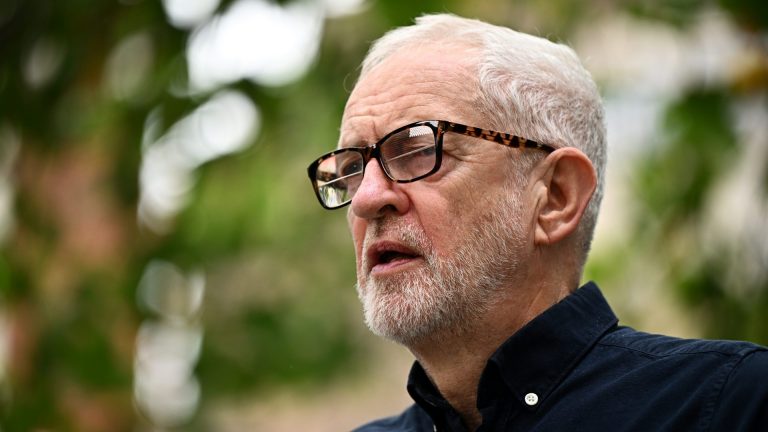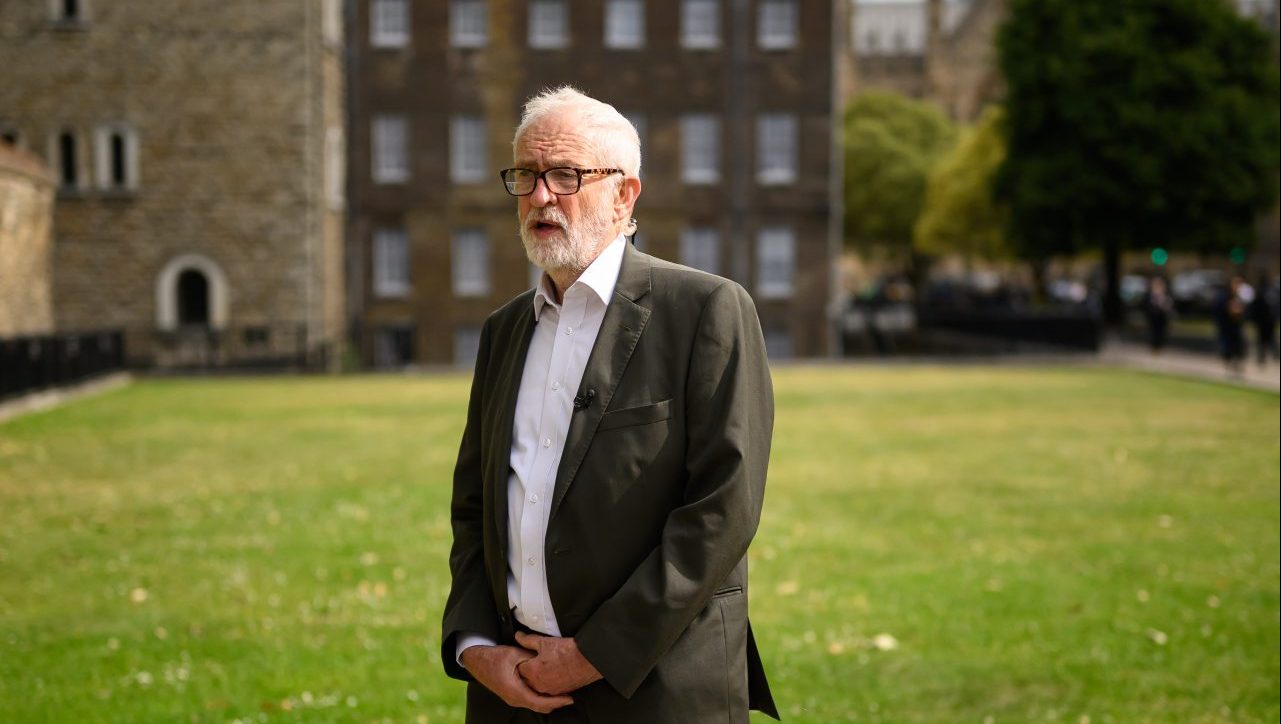Wes Streeting went to a comprehensive school. Bridget Phillipson went to a comprehensive. So did David Lammy, Yvette Cooper, Lisa Nandy, Rachel Reeves, Steve Reed, and in fact 94% of Keir Starmer’s cabinet.
If you want to know what a big deal that is, the Sutton Trust’s data on the prevalence of private education in British cabinets should drive it home: it was 91% under Thatcher, 71% under Major, and over 60% for Cameron, Johnson, Truss and Sunak. Under Keir Starmer, those privately educated make up just 4%.
Whatever else happened on July 4, 2024, this was the revolution. For the first time in British history, the hereditary rich were booted out of power at the ballot box. Even Harold Wilson, Jim Callaghan, Tony Blair and Gordon Brown, the four Labour premiers before Starmer, couldn’t muster a cabinet with less than a third of its members from the public schools.
But don’t worry. There is still a safe harbour for the £14,000-a-term brigade in British politics – and it is Jeremy Corbyn’s new party. As the old gang that led Labour in 2019 to its worst postwar defeat assembles, it is remarkable how reliant they are for leadership on public school-educated leftists.
Seumas Milne, Corbyn’s old chief of staff, went to Winchester; James Schneider, a former Corbyn staffer, is another Wykheamist. Andrew Murray, another stalwart of Corbyn during his time as leader of the opposition, went to a Benedictine boarding school in Surrey where the annual fees are today over £45,000.
Over at the Green Party, which has been joined in large numbers by former Corbynites, the star catch is Grace Blakeley (Lord Wandsworth College, £14,000 a year for flexi-boarders), who joined the party in June to support the leadership campaign of Zack Polanski (Stockport Grammar, on a scholarship).
Don’t get me wrong. I think there is a place in left wing politics for privately educated people. They are often highly articulate, well organised, come with a breadth of knowledge and the “tranquil consciousness of effortless superiority” that used to be the hallmark of the Balliol man. When the party leader you are trying to manage is a walking political booby-trap who refuses to read his briefs and keeps posing for selfies with antisemites, these qualities can come in handy.
The downside is that, for privileged people, socialism is a hobby. The task of building a party of the working class, and maintaining it over generations so that it produces, from among the depths of the proletariat, people capable of leading the country through war and crisis, becomes a task you can take or leave.
It’s not a new phenomenon. In the 1930s, the Communist Party of Great Britain became a magnet for public school-educated people at the very moment Stalin was killing Soviet workers by the tens of thousands, and peasants by the million. The unglamorous Labour Party was left to plebs like Ernie Bevin.
But the enthusiasm with which the public schoolkids around Corbyn and Zarah Sultana are now trying to trash the Labour Party is, I think, a product of unique circumstances.
For the first time since the early 1930s a Labour government has come to power amid severe economic and global crisis. Starmer inherited a stagnant economy, a welfare budget spiralling out of control and – in the shape of Russia – an acute geopolitical threat.
The Blair/Brown government, by contrast, inherited the Goldilocks Era: a stable economy, rising incomes, fiscal solvency and – until Blair embarked on the Iraq catastrophe – something closer to peace than war.
Suggested Reading


Corbyn’s new party will put Farage in No 10
In addition, Starmer faces the first serious challenge from the far right since Oswald Mosley. Plus there is the small matter of a US president who has declared a tariff war on the United Kingdom. Oh, and climate change. In short, this is the first Labour cabinet since 1929-31 to face a systemic crisis.
I don’t know whether the Starmer cabinet will handle this situation well. It may fail – just as Ramsay MacDonald’s did, despite being led by trade unionists.
It has stumbled over Gaza, performed admirably over Ukraine, jailed fascist rioters, and sped up asylum decisions. Its first attempt to solve the welfare crisis failed miserably – and its communications with working–class voters who are sick of politics have been abysmal.
But all these defects are, in the end, the product of trying to do socialist politics in a capitalist world; to defend tolerance amid a sea of racism; to produce a high-wage economy in a country where it’s easier to become a Deliveroo driver than a welder.
There are no easy solutions. Everything is a percentages game – the political equivalent of a mid-table football match. You have to grind out a result. Sometimes you lose, and sometimes it’s your own fault.
But for working-class people, social democracy is a game you cannot walk away from. Not even to preserve some long-cherished principle.
When Corbynism was a faction within Labour it had a rationale: everything else had failed and we had to try something radical. That’s why I was part of it. By the time workers were slamming the door in our faces on election night in 2019, it was clear that the wrong kind of radicalism had been adopted.
Now those who masterminded that defeat are urging us to walk away from Labour for ever. It is “dead, politically, morally and electorally,” claims Sultana (who only a year ago stood on its manifesto and took its election funding).
They do not intend to build an alliance with Labour. The hard core do not even want to build an alliance with the Greens. They intend, instead, to build an alliance of Islamist social conservatives (who love private schools so much they oppose placing VAT on them), the undergraduate decolonisation brigade, Just Stop Oil, survivors from Palestine Action and – logically – the trans rights activists who have just wrecked Wes Streeting’s constituency office.
For certain, the party’s initial meetings will feel euphoric. But its aim is to destroy the Labour tradition, built up over decades by working-class people who had no trust funds to fall back on. Whatever its intent, its political function will be to put Nigel Farage into No 10 and, on the morrow of that, see democracy collapse.
I’ve been racking my brains to think of a justification. Gaza? Asylum? The Birmingham bin strike?
I can only rationalise it like this. The Labour tradition faces an existential challenge from working-class racism; it needs to face down populist opposition to Net Zero; it has to rearm the country in the face of a severe threat from Vladimir Putin; it has to grind out economic growth from a system that no longer wants to grow.
Faced with a hard, multidimensional problem, the neo-Corbynistas have invented their own, much easier one: building a second fan club for Jeremy, which – if it succeeds – will ensure we never have to face having a 94% working-class cabinet ever again.




